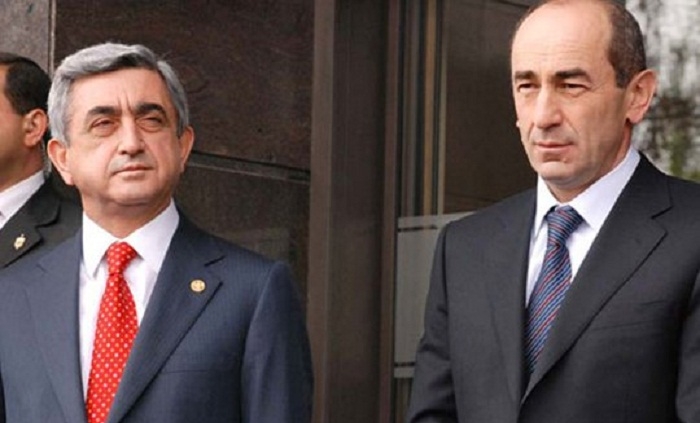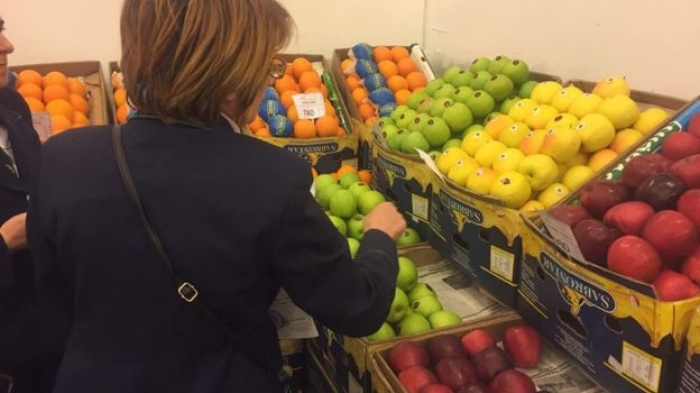After having spoken to a number of produce traders on the interstate border and in Noyemberyan and Ijevan markets, we concluded that the traders are not convinced by the authorities’ claims that the ban was merely a national security measure to protect the nation from “enemy apples” or a way of promoting the consumption of domestic produce. The sole purpose of this ban, they believe, is to benefit the businesses of local oligarchs.
“It’s cucumber and tomato season; we used to import Georgian tomatoes for 700 drams and cucumbers for 80 drams. Now they force us to buy Ararat valley produce. Tomatoes grown in the Ararat valley cost 1200 drams, and we have to resell them for at least 1300 drams. We wouldn’t mind buying this product if we knew we were helping the local farmers. But the agricultural lands in the Ararat valley belong mainly to [president] Serzh Sargsyan, [former PM] Hovik Abrahamyan and [former police chief] Alik Sargsyan,” one of the traders told our reporter.

“Alik Sargsyan has greenhouses in the Ararat province Kanachut village; the Spayka company, which imports fruits and vegetables that it grows in greenhouses near the Artashat-Ararat highway, is linked to either [former Armenian president] Robert Kocharyan or Serzh Sargsyan; Hovik Abrahamyan, for his part, has greenhouses near the villages of Mkhchyan and Tsaghkashen,” the man pointed out.
Another reseller from Noyemberyan told us that most of his colleagues are afraid to speak out against the ban because customs officials have confiscated some of their produce: “There won’t be any more protest actions [against the ban], but they won’t re-sell local produce either because no one is going to buy 1500-dram tomatoes in these poverty-stricken regions.”
Yerevan-based economist Vahagn Khachatryan considers the traders’ and importers’ doubts quite reasonable: “These major greenhouse owners are now having trouble selling their produce. The population of the country has decreased, the people’s incomes as well. What’s more, Armenian tomatoes are being sent back from the Russian border. They no longer believe that these tomatoes were in fact produced in Armenia because Armenian-labeled Turkish tomatoes are being exported to Russia in large batches. These tomatoes do not even reach Armenia; they get transferred from one truck to another on the Bagratashen border and taken straight to Russia. Armenia has reached record levels in grapes, tomatoes and apples exports to Russia: 32 000 tons of tomatoes exported when the tomato harvest is in fact very poor in Armenia. The Russians are getting suspicious.”
The Armenian greenhouse industry, Khachatryan continues, has been expanding noticeably over the past years: the oligarchs buy the villagers’ land, whereon they build greenhouses and proceed to hire the villagers as paid workers. “The land privatization in the 90s was aimed at ensuring that the villagers were farmers and not workers. Farmers who have their own land and their own business are more enthusiastic and tend to develop entrepreneurial thinking. A person who has a piece of his own land does not emigrate,” the economist concluded.
/epress.am/
More about: #Armenia #Azerbaijan #Karabakh #Georgia #apple #Sargsyan #corruption
















































